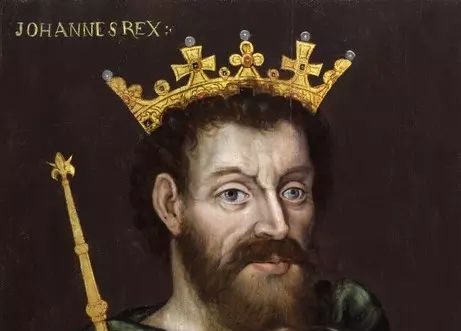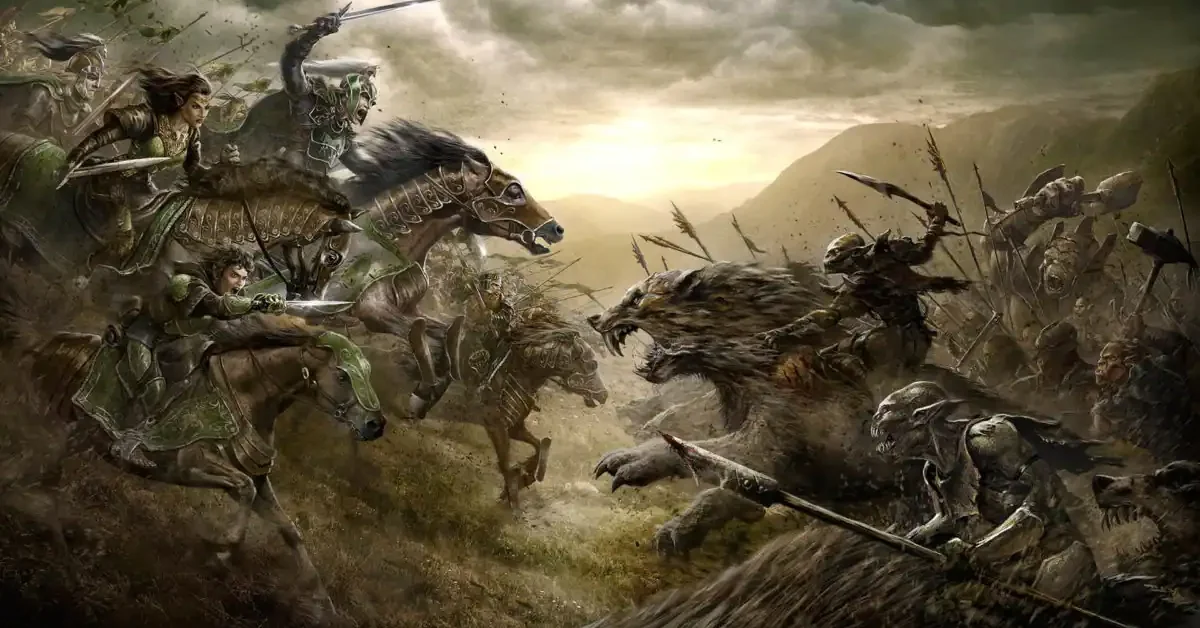King John by William Shakespeare is a historical play that explores the political turmoil and power struggles during the reign of King John of England. It delves into themes of legitimacy, loyalty, and the conflict between secular and religious authority.

Key Facts About King John
| Key Fact | Description |
| Historical Basis | King John is based on the real-life reign of King John of England, who ruled from 1199 to 1216. |
| First Performance | The play is believed to have been written and first performed in the late 1590s. |
| Themes of Power and Legitimacy | The play explores the fragile nature of kingship and the constant challenges to King John’s legitimacy. |
| Arthur’s Death | The mysterious death of Arthur, King John’s nephew, becomes a pivotal moment in the play, leading to doubts about John’s rule. |
| Religious Conflict | The play reflects the tension between secular power and religious authority, as King John clashes with the Pope, leading to his excommunication. |
Summary of King John
King John by using William Shakespeare facilities at the turbulent reign of King John of England and his battles for strength and legitimacy.
The play opens with a dispute over the English crown, as John’s nephew Arthur, supported by using King Philip of France, demanding situations his claim to the throne.
This sparks a conflict among England and France, with each sides forming and breaking alliances as they navigate the political panorama.

Arthur is sooner or later captured through John’s forces, but his mysterious death raises suspicions about John’s involvement. As a end result, John’s nobles start to query his rule.
At the same time, John faces competition from the Pope due to a battle over manipulate of the church in England, which leads to his excommunication, similarly weakening his authority.
As the play progresses, John will become increasingly more prone. He falls unwell and is in the long run poisoned, dying earlier than the end of the play.
In his final moments, the nobles reconcile their variations and pledge allegiance to John’s young son, Prince Henry, making sure a peaceful transition of electricity.
The play concludes with a feel of hope for England’s destiny, notwithstanding the tumultuous events of John’s reign.
Throughout King John, Shakespeare explores themes of political legitimacy, warfare, loyalty, and the warfare between non secular and secular authority. The play highlights the instability of power and the non-public price of political ambition.
Analysis of King John
King John by using William Shakespeare is a wealthy historical play that delves deeply into the complexities of management, strength, and the delicate nature of authority.
While not as extensively referred to as some of Shakespeare’s other works, it gives a nuanced portrayal of political struggles and personal conflicts.
The play is top notch for its exploration of themes including power, legitimacy, warfare, loyalty, and the anxiety between secular and non secular authority.
Each of these themes is intricately woven into the characters’ movements and the unfolding occasions, giving the play its depth and relevance.
At the coronary heart of King John is the question of valid strength. King John, portrayed as a monarch whose claim to the throne is constantly challenged, embodies the vulnerability of rulers who lack absolute authority.
His reign is marked by way of insecurity, specially within the face of his nephew Arthur’s competing claim, that’s sponsored by way of the King of France.
John’s desperate attempts to preserve strength, specially through politically inspired choices, reflect the fragile nature of kingship.
Shakespeare shows how electricity isn’t always a divine proper but a moving force that may be received or lost through manipulation, alliances, and army motion.
The subject matter of conflict is important to King John, and Shakespeare makes use of it to focus on the private value of political ambition.
Throughout the play, battle isn’t portrayed as a wonderful undertaking but as a tool for political benefit.

Both John and King Philip of France interact in battles, no longer for the sake in their people or u . S . A ., however to similarly their personal hobbies.
The characters often change facets, make and damage alliances, and use battle as a means to acquire their dreams.
This reflects Shakespeare’s commentary on the regularly cynical nature of politics, in which the lives of ordinary people are affected by the decisions made by those in power.
The characters’ motivations in war, especially John’s, suggest that leadership is frequently compromised by personal ambition and survival.
Loyalty and betrayal additionally play substantial roles in King John. The characters’ moving allegiances emphasize the volatile nature of political relationships.
For instance, John’s very own nobles, who to begin with assist him, begin to doubt his leadership after the suspicious loss of life of Arthur.
This erosion of accept as true with showcases the fickle nature of loyalty in a global in which power is the last prize.
Shakespeare shows that during a political panorama dominated by using ambition and competition, loyalty is fragile, and betrayal is usually a necessary a part of survival.
The nobles’ eventual decision to show in opposition to John and pledge allegiance to Prince Henry after John’s dying demonstrates how loyalty may be easily transferred whilst it serves a political reason.
Religion, any other big theme inside the play, is intricately tied to the politics of the time. The conflict among King John and the Pope, which ends up in John’s excommunication, reflects the broader tension between secular and non secular authority.
Shakespeare makes use of this warfare to reveal how spiritual affect can undermine political power, as John’s standing as king is weakened via his inability to govern the church.
The electricity warfare among the church and the monarchy is not only a mirrored image of the ancient truth however also a metaphor for the wider subject of authority within the play.
The loss of help from the Pope undermines John’s authority, both politically and morally, contributing to his eventual downfall.
Moreover, John’s character itself is a principal detail of the play’s deep evaluation. Shakespeare portrays him as a ruler whose insecurities force many of his movements.
Unlike Shakespeare’s extra confident and charismatic kings, John is depicted as a person who struggles with the demands of leadership.
His selections, specially regarding Arthur’s seize and subsequent dying, screen his desperation to retain strength at all fees.
This desperation alienates him from his allies and in the end contributes to his decline. John’s complex character, a mixture of ambition, worry, and lack of confidence, makes him one of Shakespeare’s more human kings, a ruler who’s formed through the political pressures around him.
In conclusion, King John offers a deep exploration of power, struggle, loyalty, and authority. Shakespeare’s portrayal of the political panorama, with its regular shifting of alliances and fragile loyalties, displays the undying nature of management struggles.
Moreover, the themes of legitimacy, ambition, and the balance among secular and spiritual energy make King John a play that resonates some distance beyond its ancient context.
By intertwining those issues into the characters’ private journeys and the political activities of the time, Shakespeare crafts a complex narrative that still speaks to trendy audiences approximately the nature of electricity and the human situation.
Character Analysis In King John
| Character | Description |
| King John | The central figure of the play, King John is a ruler whose legitimacy is constantly questioned. He is determined to hold on to power but is plagued by insecurity. |
| Arthur | The central figure of the play, King John is a ruler whose legitimacy is constantly questioned. He is determined to hold on to power but is plagued by insecurity. |
| Philip the Bastard | A loyal supporter of King John, Philip is a bold and outspoken character. He questions the morality of politics but remains committed to John throughout the play. |
| King Philip of France | The King of France, he opposes John and supports Arthur’s claim to the English throne. His ambition and shifting loyalties drive much of the political conflict. |
King John of England (c. 1166 – 1216)
From 1199 to 1216, John ruled England as its monarch. During his dispute with French King Philip II, he lost most of his French territories, including Normandy.
There was strong opposition to his reign in England, and after a baron protest, he was compelled to sign the Magna Carta, a crucial historical document, in 1215.
Early Life and Struggles for Power
King Henry II and Eleanor of Aquitaine had a son named John, who was the youngest. His older brothers rebelled because their father, who favoured him the most, expected to give him territory.
John became the Lord of Ireland and received some assets in England. In 1185, he traveled to Ireland, but he made some poor political choices and became known for his carelessness.
John received further estates and titles, such as Count of Mortain, after his brother Richard I came to the throne in 1189.
He had to swear not to go back to England while Richard was on a mission, though, because Richard didn’t trust him.
John, however, betrayed this promise by trying to gain power in England. He also planned against his own brother with the French king.
After punishing John upon his return in 1194, Richard later restored him and appointed him as his heir.

Becoming King
In 1199, Richard died suddenly. Because it was believed that the son of an elder brother should inherit was not yet widely accepted. So John became king instead of his infant nephew Arthur.
John became Duke of Normandy after being crowned King of England. He later gave up some property and money in exchange for a peace agreement with King Philip II of France.
War and Losses in France
John married Isabella, princess to Angoulême. Isabella was previously married to someone else, after divorcing his first wife, Isabella of Gloucester.
More problems came about due to this. War started after the irate Lusignan family appealed to King Philip.
In 1204, John partially succeeded when he took Arthur, but he soon lost Normandy. He had lost additional French territory by 1206.
John’s image weakened as a result of these losses, and he felt forced to spend most of his time in England.
John assumed more direct authority over the government following the passing of Archbishop Hubert Walter. He taxed the Jews, looked into properties, increased authority over royal forests, and imposed taxes.
Many royalty were disgruntled with his tight hold on power and high taxes, and they thereafter referred to him as a tyrant.
Conclusion
In conclusion, King John by Shakespeare presents a compelling examination of power, ambition, and political instability.
The play’s exploration of leadership and its consequences remains relevant to both historical and modern contexts.
FAQs
King John is famous for signing the Magna Carta in 1215.
King John died of dysentery in 1216 during a period of conflict.
Yes, Shakespeare wrote the historical play King John.
King John spoke Norman French, Latin, and some early Middle English.
Related Posts
Henry V by Shakespeare | Summary, Analysis & General History
Richard II by Shakespeare | Summary, Analysis & Themes
Richard III By William Shakespeare | Summary, Analysis & Facts
Much Ado About Nothing | Summary, Analysis & Characters
Henry IV Part I and Part II (The Hollow Crown) | By Shakespeare


